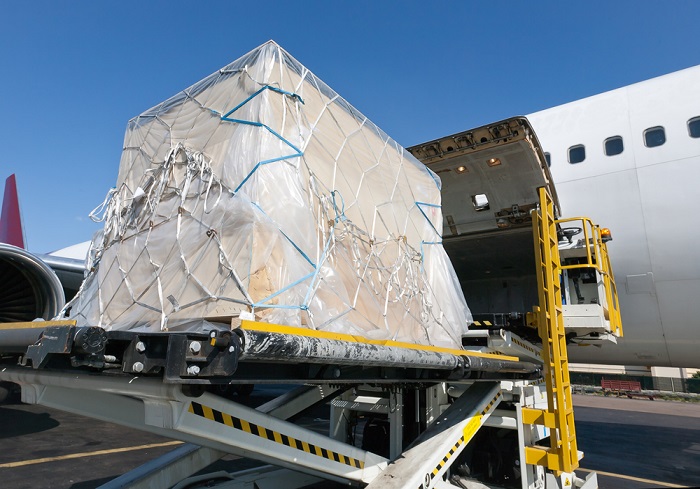Is Amazon Behind This Secretive Ohio Air Cargo Op?

Luck favors the bold in life and in retail, and no company lives by this maxim more than Amazon. Granted, being an industry leader means that Amazon may have the reach and resources to attempt far-fetched projects that might seem like pipe dreams to smaller merchants. Nothing ventured, nothing gained. But is there such a thing as venturing too much?
According to a new report from Motherboard, an unnamed retailer has been testing the waters of starting its own air cargo service, and more likely than not, it’s Amazon that seems to have its head in the clouds.
The Motherboard report focused on covert goings-on at the Wilmington Air Park, a non-commercial airport in southwest Ohio that once served as a major hub for the now-departed carrier DHL. Once a U.S. Air Force facility, the airport is equipped with everything a military or a military-scale retail operation would require to get things where they need to go fast — runways large enough to land 747s, eight warehouses ranging between 74,000 square feet and 1.1 million square feet and office space totaling over 100,000 square feet.
Motherboard explained that since DHL left Wilmington in 2008, the air park has seen very little activity in the way of airborne shipping. However, the report detailed how an unnamed company has set up shop at the airport, bringing four leased Boeing 767s with it. While an aviation holding company known as the Air Transport Services Group (ATSG) is in charge of overseeing all necessary work to keep these cargo planes coming and going, Paul Cunningham, a spokesman for ATSG, kept mum when asked which company had contracted ATSG to run the operation known as “Aerosmith,” as well as what kind of products it’s shipping.
“It is general consumer goods,” Cunningham told Motherboard. “I can’t be specific. We just receive the freight, load it on and move it. It’s not something that it’s obvious what it is.”
That’s hardly enough evidence to point to Amazon as the clandestine backer of the Wilmington Air Park’s sudden resurrection, but Cunningham confirmed that the four 767s have been making regular flights from Ohio to airports in Oakland, Tampa, Allentown, Pennsylvania, and Ontario, Canada. All of those cities happen to have Amazon fulfillment centers within 60 miles of the airports, with Allentown and Ontario a scant 20-mile stone’s throw away from the nearest warehouse.
Amazon neither confirmed nor denied involvement with the mysterious Aerosmith project, but other established carriers, like UPS, FedEx and DHL, all told Motherboard that they had nothing to do with the situation at Wilmington Air Park.
If that still seems like tenuous evidence to point to Amazon as Aerosmith’s true identity, it helps to ask a simple question: Cui bono? To whose profit? In an October interview with The Loadstar, asset management firm RW Baird explained that Amazon stands to make $5 billion annually — $800 million in domestic deliveries, $1.7 billion in freight forwarding and $2.5 billion in contract logistics — just from cutting out the middlemen in its logistics network and delivering packages themselves.
“It’s apparent that logistics is becoming a more integral part of Amazon’s retail business, and as such, we believe they could look to externalize some of the logistics-centric technology as third-party services,” financial analysts at RW Baird said. “While most of these openings are focused on serving internal logistics demand, it highlights the broader focus on transportation and logistics within Amazon.”
Brandon Fried, executive director of the Airforwarders Association freight advocacy group, told Motherboard that as Amazon continues to ship more and more products, it’s a simple economics lesson that the direct costs to get packages to consumers in two days (or faster) will scale as well. To Fried, the idea of Amazon pulling back on the usual carriers it’s relied on in the past is simply an investment in themselves rather than a bill to be paid to someone else.
“In our business, if you have to go out and buy transportation all the time from others, they are going to make money, and when you are operating on thin margins, you are going to find ways to make that more cost-efficient,” Fried said. “Amazon has got the delivery infrastructure in place. They are delivering products the next day virtually everywhere in the U.S. now, and they are buying that transportation from somewhere.”
Amazon is no stranger to being the first to offer new delivery options and cutting-edge logistical support, but if the retailer truly is behind Aerosmith, it might be the first time in history a company actually starts an airline to save money.